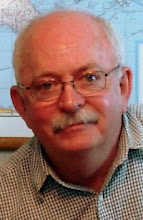He's not only just a local guy, but a member of our church, which is behind his work 100%.
San Antonio Authorities Arrest Syringe Exchange Workers
The Texas state legislature authorized creation of the state's first legal needle exchange, as a pilot project, in San Antonio. Local officials are blocking the plan and now harm reduction workers involved in a needle exchange there have been arrested.
The Los Angeles Times reported on Jan. 28, 2008 ("His Needle Plan Has Touched A Nerve") that "Bill Day doesn't fancy himself an outlaw -- and with his Mr. Rogers demeanor, he definitely doesn't look the part. But soon the 73-year-old lay chaplain could spend up to a year in jail for breaking a law that he considers immoral. Day hands out clean needles to drug addicts on some of the seediest streets in this south Texas city. He does it because he's convinced that it reduces human suffering by curtailing the spread of HIV, a view that has been supported by medical research for more than a decade. However, Day's actions are illegal in Texas -- the only state that has not started a needle-exchange program of some kind. So when a San Antonio police officer spotted him swapping syringes with prostitutes and junkies this month, he was arrested on drug paraphernalia charges."
According to the Times, "Neel Lane, a high-powered San Antonio lawyer who agreed to defend Day for free after learning about his case through their church, St. Mark's Episcopal, said it was time for the Lone Star State to admit it was behind the times. 'When you're the only state that doesn't have [a needle-exchange program], you're either the 2% smartest or 2% dumbest in the country,' Lane said. Though Texas is the only state that has not begun at least a pilot needle-exchange program in any city, lawmakers last year authorized one -- for San Antonio. Bexar County public health officials are studying whether to launch it, but Dist. Atty. Susan Reed has warned that she could prosecute anyone who distributes needles because she considers the act illegal. 'I'm telling [local officials], and I'm telling the police chief, I don't think they have any kind of criminal immunity,' Reed said in August, according to the San Antonio Express-News. Reed has not explained why she opposes the program, and her office did not return requests for comment. But at the request of a state lawmaker, Texas' attorney general is reviewing the dispute. Day and two associates, cited with him on Jan. 5, initially faced Class C misdemeanors, which are punishable by a fine of up to $500. But Reed's office and police plan to increase the charges to distributing drug paraphernalia, a Class A misdemeanor, which carries a possible one-year jail sentence."
The Times noted that "Day's supporters say they are outraged that police and prosecutors are treating the activists as criminals. 'How silly to arrest senior citizens who are trying to stop the spread of HIV in their community,' said Jill Rips, deputy executive director of the San Antonio AIDS Foundation, which provides HIV testing and runs a hospice. 'Don't police have something better to do?' Day said he accepted the arrest as part of a process that his community must go through before it could begin a healthy debate about reducing the spread of AIDS by addicts."










